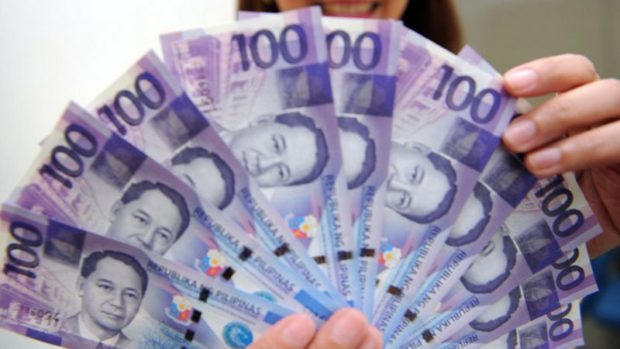
The peso – though it has already slid to an almost 11-year low level – will not significantly weaken further as it will be supported by solid economic fundamentals, according to Bangko Sentral ng Pilipinas (BSP) Gov. Nestor A. Espenilla Jr.
“The peso is market-determined,” Espenilla noted in a text message to reporters Sunday. “It’s natural for it to show volatility as it adjusts to market conditions and all the short-term uncertainties, such as increased tension in North Korea.”
Last Friday, the peso touched the 51.00:$1 level, hitting an intraday low of 51.08:$1 even as it eventually closed at 50.98:$1.
The peso’s close at the end of last week remained at an nearly 11-year low level, the weakest since the 51.05:$1 recorded on Aug. 29, 2006.
But Espenilla said: “We don’t expect [the peso] to do a free fall because our economic fundamentals now, unlike before, are solid and very strong.”
Among other things, he said the country enjoys investment grade credit ratings from the major debt watchers.
“The peso is capable of correcting itself as the market calms down and digests the relevant information,” he added. “Moreover, the BSP will always be there strategically if volatility is considered excessive. We have a huge pile of foreign exchange reserves to play an effective stabilizing role.”
The latest BSP data nonetheless showed that the country’s dollar reserves stood at $80.787 billion in July, the lowest in seven months, partly due to outflows arising from the BSP’s foreign exchange operations to temper peso depreciation.
As for the market’s concern on the current account deficit, Espenilla pointed out that “the Philippines is an emerging market economy that wants to grow.”
“To be sustainable, it needs to catch up on high-quality investments, especially infrastructure,” he said. “It’s natural for it to run moderate current account deficits.”
“In fact, it’s sub-optimal for it to be persistently running current account surpluses,” he added. “That’s like the equivalent of deploying our own savings to the world instead of using those internally to finance our own investment needs.”
For 2017, the BSP expects the current account to swing to a deficit of $600 million from last year’s $600-million surplus, as the projected 10-percent growth in imports would outpace the 5-percent exports growth.
“As the recent International Monetary Fund mission observed, we’re doing well and the economy is not overheated,” Espenilla said. “Nonetheless, the BSP stands vigilant. Let’s calm down. We’re on the right track.”
Last week, the IMF cut its 2017 growth forecast for the Philippines to 6.6 percent from 6.8 percent previously on the back of slower-than-expected expansion in the first quarter. But the multilateral lender sees the country remaining among the region’s bright spots as long as economic reforms are sustained. /atm

